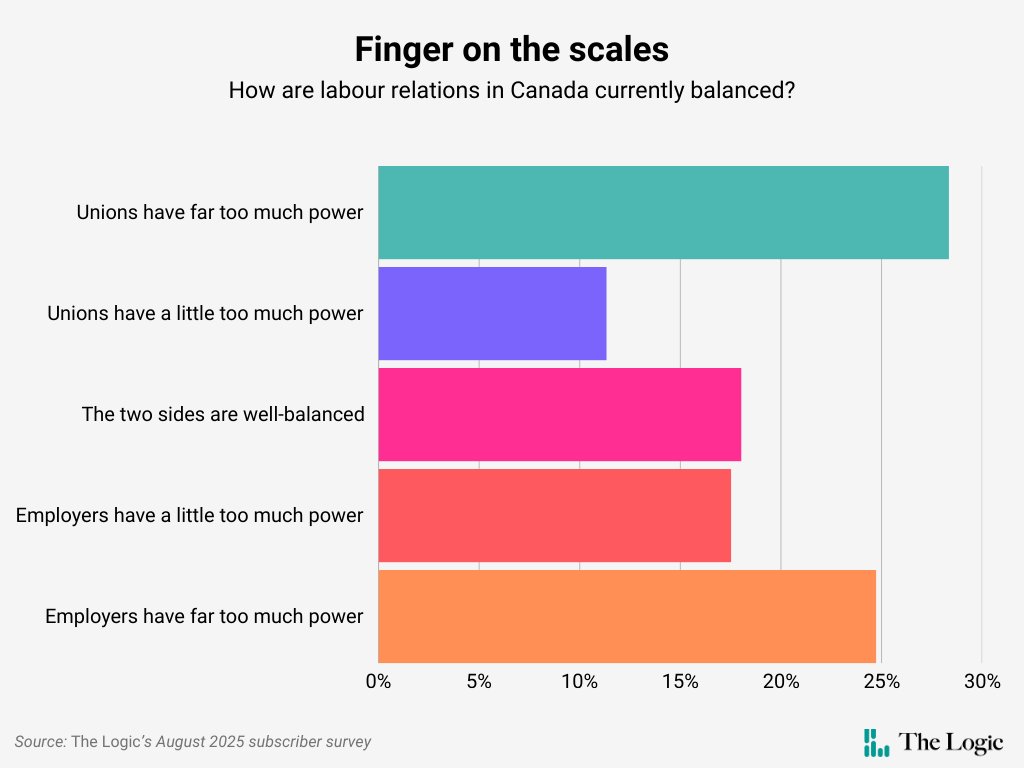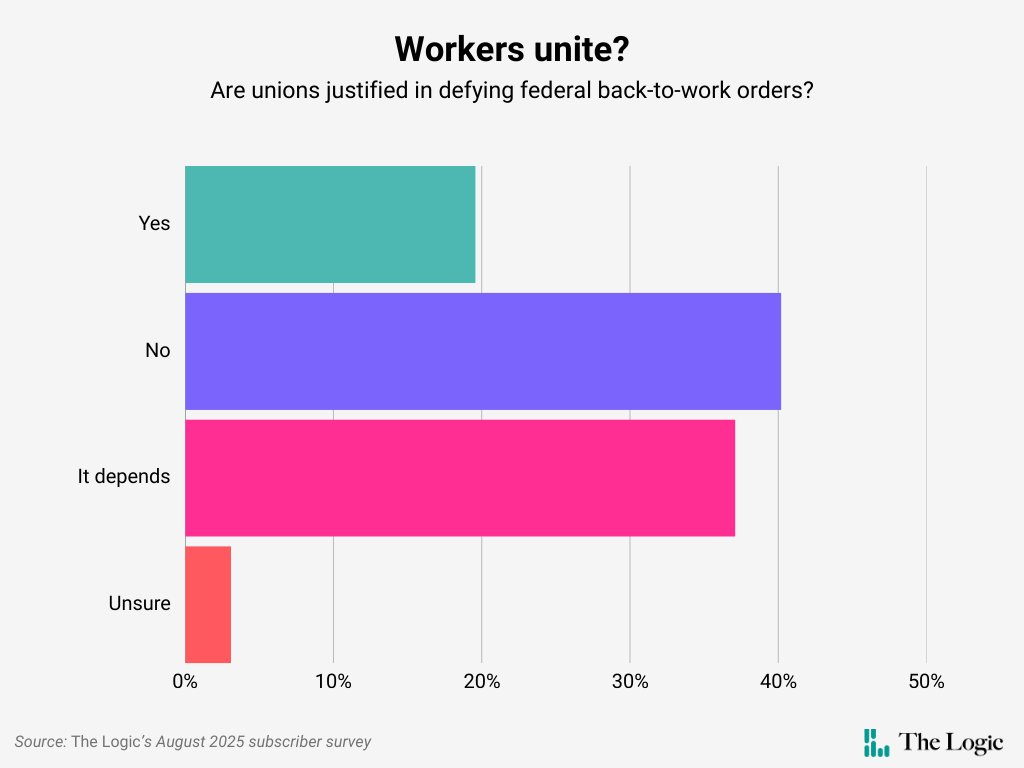Respondents to The Logic’s latest subscriber survey are divided on Canadian labour relations, with 42 per cent saying employers have too much power, while 40 per cent said the same about unions.
The issue has come to the fore with this month’s Air Canada flight attendants strike, when union leadership defied a federal back-to-work order aimed at ending the impasse. The standoff didn’t last long, as the airline and its employees reached a tentative agreement that ended the strike within days.
Related Articles
While respondents to The Logic’s survey were split in their response to the strike and their assessment of labour relations more generally, their responses were polarized. Twenty-eight per cent of readers said Canadian labour relations were balanced “far too much” in favour of unions—the top response—but in second place were the 25 per cent who said the same was true for employers.

There was slightly more agreement on the question of whether the government favours unions or employers, with 54 per cent saying Ottawa is “very” or “somewhat” pro-employer, more than twice the amount who believed the government is “very” or “somewhat” pro-union.
The return-to-work orders were cited by many who said the government is pro-employer, but several respondents characterized those actions as “pro-public.” Another said those high-profile orders were offset by recent Canada Labour Code changes placing prohibitions on hiring replacement workers during a strike or lockout.
Only 20 per cent of respondents said the government should not be able to issue back-to-work orders for strikes, slightly more than the 16 per cent giving unqualified approval to the idea. Nearly 63 per cent said the merit of such an order would depend on the circumstances. Some readers said such orders are justified when a strike impacts the economy, involves essential services, or when there is no significant competition to step in.

Twenty per cent of respondents also said unions are justified in refusing back-to-work orders, while 37 per cent said it depended on the circumstances. Some of the relevant considerations included whether the government was too quick to make its order, or if the companies didn’t bargain in good faith. Forty per cent of respondents said unions were not justified in refusing, with many pointing to the rule of law—but some said there’s merit in considering the conditions that made unions willing to defy such orders.
“The law is the law,” one reader said, “but this defiance is an indicator of desperation. It’s worth assessing the playing field.”
Many respondents expressed a desire for greater collaboration between unions and employers to avoid disruptions. Other suggestions included a waiting period before the government can pursue a back-to-work order and a requirement to disclose each party’s best offers in the case of a strike. Several readers suggested adopting a system more like that of Germany, where employee representatives hold seats on the board of directors.
“The real problem isn’t only with unions or management, it’s with how businesses view workers as a whole,” one respondent said. “Until workers are treated as partners in growth rather than as costs to be minimized, labour relations will remain broken, and Canada’s GDP will continue to suffer.”



